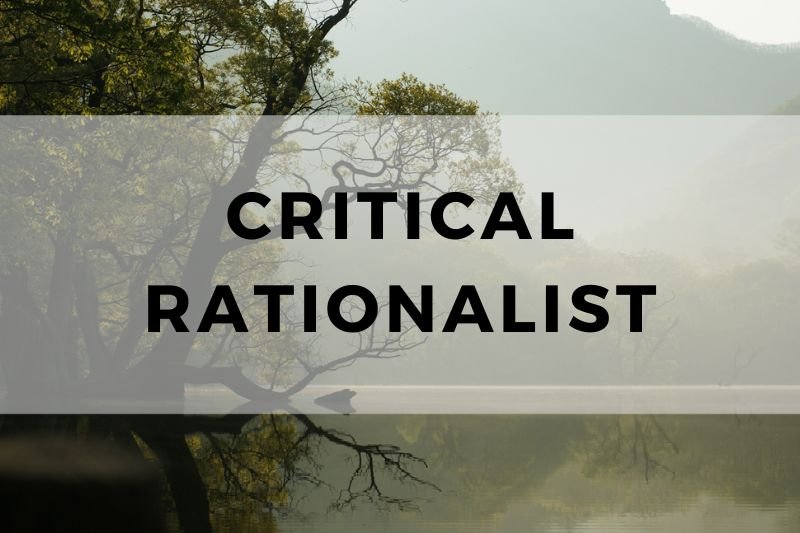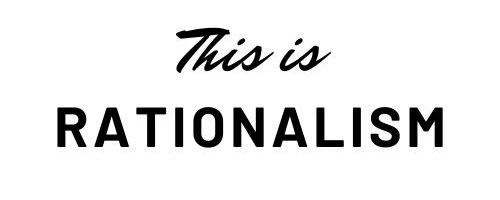
How do we separate truth from falsehood? Critical rationalism offers a powerful method. It rejects blind faith and demands reasoned debate. Instead of seeking absolute certainty, it focuses on testing ideas. Every belief must withstand scrutiny. If it fails, it should be abandoned or refined.
This approach was developed to counter dogmatism. It embraces doubt as a tool for progress. Mistakes are not failures but opportunities to improve. A critical rationalist welcomes challenges. They do not cling to opinions out of pride. Instead, they seek better explanations through continuous questioning. Understanding this mindset is key to intellectual growth.
Introduction to Critical Rationalism
What is Critical Rationalism?
Critical rationalism is a philosophy that prioritizes reason and criticism over authority and certainty. It argues that knowledge grows through trial and error, not by proving things absolutely true. Instead of seeking verification, it focuses on falsification—testing ideas to see if they can withstand scrutiny.
This philosophy was pioneered by Karl Popper. He argued that human knowledge is always provisional. No theory is ever final. Instead of looking for unquestionable truths, critical rationalism encourages open-ended inquiry. It challenges assumptions, refines ideas, and constantly improves understanding. This mindset is essential for scientific progress, social development, and intellectual honesty.
Origins of Critical Rationalism
Critical rationalism emerged in response to the failures of traditional epistemology. Before Popper, many philosophers believed in justificationism—the idea that knowledge must be proven beyond doubt. This led to dogmatism, where ideas were accepted without challenge. Popper rejected this view and introduced falsifiability as the core principle of scientific inquiry.
The historical roots of critical rationalism go back to thinkers like David Hume and Immanuel Kant. Hume’s skepticism about certainty influenced Popper’s rejection of absolute proof. Kant’s ideas on the limits of human knowledge also shaped critical rationalism. By combining these insights, Popper created a framework that prioritizes error correction over certainty.
Key Figures
Karl Popper is the most influential figure in critical rationalism. His book The Logic of Scientific Discovery (1934) laid the foundation for falsifiability in science. He argued that science advances by refuting false theories, not by proving them right. His ideas revolutionized philosophy, science, and even political thought.
Other notable figures include William Bartley, who expanded critical rationalism into broader epistemology. David Deutsch applied Popper’s ideas to physics and problem-solving. Hans Albert developed critical rationalism in the context of social sciences. Each contributed to the evolution of this philosophy, showing its relevance beyond just science.
Characteristics of a Critical Rationalist
#1. Emphasis on Rational Thought
A critical rationalist values reason over authority or tradition. They believe ideas must be analyzed logically rather than accepted blindly. This means questioning assumptions, avoiding biases, and using clear arguments. Rational thought allows individuals to separate good ideas from bad ones based on evidence and reasoning.
This approach is crucial in science and philosophy. Karl Popper emphasized that rational discussion leads to progress. Without it, beliefs remain stagnant. Critical rationalists do not accept claims just because they are popular or traditional. Instead, they demand justification and logical consistency. Rational thinking is their primary tool for evaluating truth.
#2. Openness to Criticism
A critical rationalist welcomes criticism rather than avoiding it. They see it as a way to refine their beliefs and improve understanding. When an idea is challenged, it provides an opportunity to test its strength. Weak arguments are discarded, and strong ones become even stronger.
Popper argued that progress depends on open debate. Without criticism, errors remain uncorrected. In science, unchallenged theories become dogma. In society, unquestioned beliefs can lead to oppression. Critical rationalists embrace disagreement because it forces them to think more deeply and refine their ideas through reasoned discussion.
#3. Falsifiability of Theories
A critical rationalist believes that for an idea to be meaningful, it must be testable. This principle, known as falsifiability, means that theories should be structured in a way that allows them to be proven wrong if they are incorrect. If no test can disprove a theory, it is not a scientific claim.
Popper introduced falsifiability to distinguish science from pseudoscience. For example, Einstein’s theory of relativity made predictions that could be tested and potentially disproven. In contrast, Freudian psychology explained everything but predicted nothing specific. Critical rationalists apply this principle beyond science, rejecting ideas that are vague or unfalsifiable.
#4. Rejection of Dogmatism
Dogmatism is the acceptance of ideas without question. A critical rationalist opposes this mindset. They believe that no belief should be immune to challenge, no matter how widely accepted it is. Truth is not determined by tradition, authority, or consensus. It must be earned through rigorous examination.
Dogmatism leads to intellectual stagnation. It prevents progress by discouraging dissent. Historically, scientific breakthroughs often came from challenging accepted ideas. Galileo opposed the geocentric model despite widespread opposition. Critical rationalists follow this example. They refuse to accept claims without justification and remain skeptical of unquestioned doctrines.
#5. Fallibilism
Fallibilism is the belief that all knowledge is uncertain. A critical rationalist accepts that human understanding is always limited and subject to error. Even the best-supported theories can later be disproven or refined. This humility keeps them open to new evidence and better explanations.
Popper argued that absolute certainty is impossible. History shows that many once-accepted truths were later overturned. For example, Newtonian physics was replaced by Einstein’s theories. Critical rationalists accept that their own beliefs might be wrong. This makes them more willing to change their views when presented with stronger arguments.
#6. Problem-Solving Focus
A critical rationalist approaches knowledge as a tool for solving problems. Instead of seeking ultimate truth, they look for better solutions to existing challenges. Knowledge grows through trial and error. Problems are identified, theories are tested, and errors are corrected.
This mindset is essential in science, philosophy, and everyday life. Popper described science as an endless process of problem-solving. Each theory is a temporary solution, improved by finding and correcting mistakes. A critical rationalist does not aim for final answers. They focus on refining ideas to address real-world issues.
#7. Continuous Learning
A critical rationalist never stops learning. They recognize that knowledge is not static. New discoveries constantly reshape our understanding. Instead of clinging to past beliefs, they seek out new information and refine their views accordingly.
Lifelong learning requires curiosity and humility. It means engaging with different perspectives and being willing to change one’s mind. Scientific progress depends on this attitude. Theories evolve as new data emerges. In personal growth, critical rationalists actively seek to expand their understanding rather than assuming they already know everything.
#8. Commitment to Open Inquiry
Open inquiry means allowing all ideas to be discussed and tested. A critical rationalist opposes censorship and ideological restrictions on thought. Progress depends on the freedom to question and debate any claim, no matter how controversial.
Historically, intellectual progress flourished where free inquiry was allowed. The scientific revolution advanced because thinkers could challenge old ideas. Suppressing discussion leads to ignorance and stagnation. Critical rationalists insist that no idea should be off-limits for examination. They believe that through open debate, the best ideas will emerge and errors will be exposed.
#9. Objective Standards of Evaluation
A critical rationalist does not judge ideas based on personal preference or popularity. They rely on objective standards. These standards may include logical consistency, empirical evidence, and falsifiability. Ideas should be assessed based on their merits, not on who proposes them.
This principle is vital in science and philosophy. Popularity does not make an idea true. Historical examples show that widely accepted beliefs were later proven false. Critical rationalists apply objective evaluation in all areas of knowledge. They reject emotional biases and focus on rational assessment to determine the best explanations.
#10. Skepticism of Absolutes
A critical rationalist is skeptical of absolute claims. They recognize that certainty is often an illusion. People who claim to have the final truth usually resist change and ignore counterarguments. This attitude leads to dogmatism and prevents intellectual progress.
Skepticism does not mean rejecting everything. It means questioning claims and demanding strong evidence. Many historical “certainties” have been disproven over time. For example, the belief that the Earth was the center of the universe was once absolute. A critical rationalist avoids such rigid thinking. They remain open to new possibilities and continuous revision of knowledge.
Conclusion
A critical rationalist values reason, skepticism, and open inquiry. They reject dogmatism, embrace criticism, and accept that knowledge is always uncertain. Instead of seeking absolute truth, they focus on testing ideas and solving problems. This mindset drives progress in science, philosophy, and society.
By applying objective standards and questioning assumptions, critical rationalists refine their understanding over time. They welcome new evidence and adjust their beliefs when necessary. This approach ensures continuous learning and intellectual growth. In a world full of misinformation and rigid thinking, critical rationalism provides a path to clearer, more reliable knowledge.
